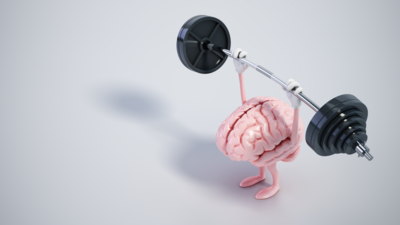Once a year, World Alzheimer’s Day helps to remind us how crucial brain health is, both to avoid memory-associated diseases but to lead a happy, independent life into old age. Though neurodegeneration is a factor, more and more science demonstrate that lifestyle decisions greatly impact how better or badly our brains age. And here’s the good part—nowhere is too early or too late to take action. Below are seven practical, science-proven steps to start today to keep your mind fit long into your 60s and beyond.
Remain physically active
Regular exercise increases blood circulation to the brain, decreases one’s risk for hypertension and diabetes, and promotes development of new neural pathways. Walking briskly, swimming, riding a bicycle, or even yoga for 30 minutes daily can boost memory and focus.
Prioritize Quality Sleep
Sleep is more than rest—time for brain repair. When we sleep profoundly, waste such as beta-amyloid, associated with Alzheimer’s disease, is eliminated. Grown-ups should have 7–8 hours of continuous sleep a day to boost mood, attention, and future intellectual function.
Keep Learning, Keep Challenging
Your brain is fueled by novelty. Learning a new language, a new instrument, crosswords, or even software increases neural links. Lifelong learning defers intellectual decline by building up what neuroscientists call a “cognitive reserve.”
Eat a Brain-Friendly Diet
Your diet directly affects brain health. There has been a demonstration that a Mediterranean diet rich in leafy greens, nuts, fatty fish, olive oil, and berries can slow down age-related decline. Cutting down consumption of packaged foods and refined sugar can protect against inflammation that destroys brain cells.
Handle Stress Well
Chronic stress accelerates brain ageing and impairs memory. Simple practices like meditation, mindfulness, deep breathing, or journaling can lower cortisol levels. Even ten minutes a day of mindful relaxation can protect brain cells from long-term damage.
Cultivate Social Relationships
Dementia’s quiet threat is loneliness. Conversation with others, visiting with family or a friend, or participation in community activities helps to maintain intellectual and emotional functioning. It is as good for your brain as exercise is for your body.
Be Aware of Health Status
Untreated diabetes, high blood pressure, overweight or obesity, and high cholesterol greatly accelerate intellectual decline. Regular visits to a doctor, early treatment, and lifestyle modifications protect the heart but also protect the brain. The Ultimate Conclusion Brain health is neither a prerogative of ripe old age; it is a continuous investment. Even small, consistent steps taken today can cumulatively make a vast impact by age 60. On account of today being World Alzheimer’s Day, let’s raise our awareness about the disease beyond being just observant; let’s also educate ourselves to take preventive steps. Ultimately, a healthier brain spells a better memory, better decision-making, and a better quality of life to come.(Dr Khushboo Patel, Consultant – Neurology, Max Smart Super Hospital, Saket)


